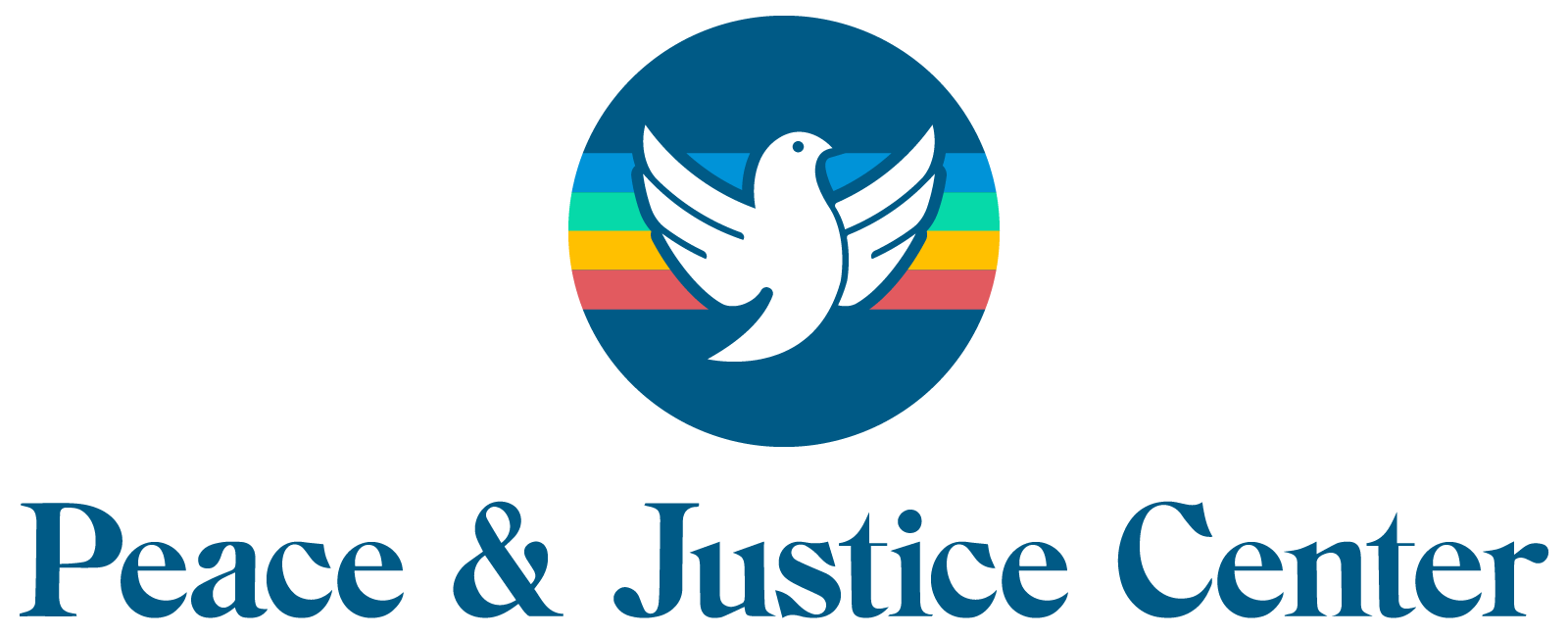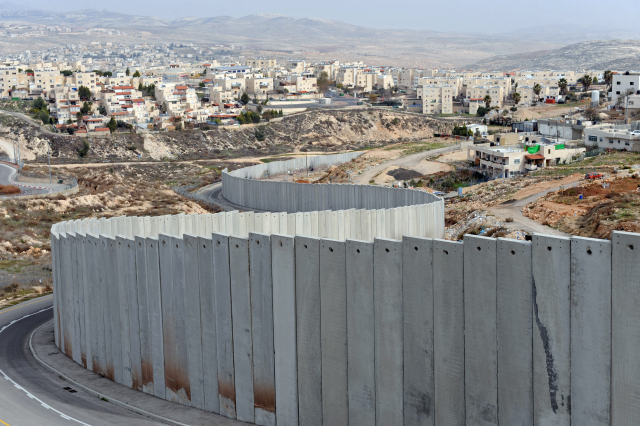-Ian Stokes, Vermonters for Justice in Palestine
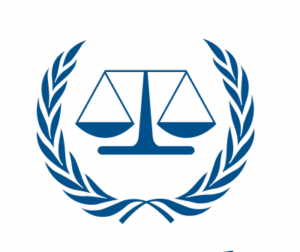
International law is “a body of rules established by custom or treaty and recognized by nations as binding in their relations with one another” – a major aim is preventing war or at least regulating its conduct. After Armistice Day in 1918 people thought WW1 (the Great War) had been the ‘war to end all wars’. It had seen mechanized and industrialized slaughter on an unprecedented scale. In a promising development the League of Nations was founded on January 10, 1920 by Woodrow Wilson and others. But early signs were discouraging, the US never joined, and the Soviet Union joined only briefly. Having failed to prevent WWII, the League ceased operations in April, 1946.
While the Great War was ghastly in terms of the slaughter of combatants, WWII extended the coordinated slaughter to civilian populations of occupied countries. So, as WWII was ending in October 1945 the United Nations was established in a renewed effort for international cooperation. The UN now has 193 member states represented in the General Assembly. But the only binding resolutions are those made by the Security Council, which has five permanent members: China, France, Russia, the United Kingdom, the United States, and ten non-permanent members serving two-year terms. The UN also hosts the International Court of Justice (ICJ). Unfortunately UN Security Council resolutions and ICJ decisions are often not enforceable, even by the peace-keeping forces.
Also in response to the horrific killing and abuses of civilians in WWII, the 4th Geneva Convention (July 1949) addressed humanitarian protections for civilians in war zones. Since 1949 three additional Protocols have been added to the Geneva Conventions, but the US and Israel are only parties to the third. Also, the Universal Declaration of Human Rights (first chaired by Eleanor Roosevelt) was adopted by the UN General Assembly as Resolution 217 in December 1948. In 1993, the United Nations Security Council concluded that the Geneva Conventions had passed into the body of customary international law, thus making them binding also on non-signatories to the Conventions during armed conflicts.
Israel and International Law
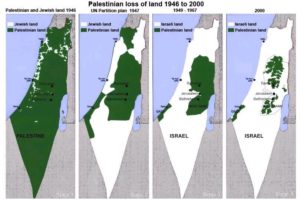
Despite the Geneva Conventions and UN Security Council Resolutions, the Israeli government blatantly ignores international law in dealing with Palestinian people. In the prolonged military occupation and colonization of Palestinian territories, Palestinian people have experienced egregious assaults on their lives on a daily basis. Actions that that were outlawed after or before WWII have become normal: civilians are subject to extra-judicial killings, collective punishment (curfews and home and infrastructure demolitions), night-time home invasions, arrests of children, torture and detention without trial. Travel restrictions and checkpoints cut people off from their livelihoods, medical care, their friends and relatives. After withdrawing its military and illegally settled civilians from Gaza, Israel (along with Egypt) instigated a land, air and sea blockade. Civilians, including women and children along with medics and journalists have been shot by Israeli snipers when they approached the border fence in an attempt to exercise their legal right to return to their original homes.
The powerful Likud party in Israel upholds the right to Jewish settlement, ignoring the fact that civilian settlement of occupied territory is specifically prohibited by the 4th Geneva Convention. Likud rejects the idea of a Palestinian state west of the Jordan River. What was Palestine has become an Apartheid state because of expansive Zionism.
The UN and the Palestinian People
Rather than addressing these human rights abuses, international aid programs for Palestinians frequently just serve to normalize and provide cover for them and to excuse Israel of its legal obligations as an occupying power. The UN has made substantial efforts on behalf of Palestinian people. Following the 1948 partitioning of Palestine, UNRWA was established by United Nations General Assembly Resolution 302 to carry out direct relief and works programs for hundreds of thousands of Palestine refugees. (US contributions to UNRWA were eliminated in 2018.) UNWRA has become the longest lasting relief agency because Israel refuses to allow Palestinian refugees to return to land it controls. Israel refuses to accept UN Resolution 194 which insisted that refugees wishing to return to their homes and live at peace with their neighbors should be permitted to do so at the earliest practicable date, and that compensation should be paid for the property of those choosing not to return.
Unenforced resolutions highlight the powerlessness of the UN to resolve the fundamental problems. Most notably, the legally binding UN Security Council Resolution 242 was unanimously approved in November 1967 in an effort to deal with the humanitarian consequences of the ‘six-day’ war in which Israel occupied the West Bank, Gaza, the Golan and the Sinai Peninsula. It demands:
(i) Withdrawal of Israeli armed forces from territories occupied in the recent conflict;
(ii) Termination of all claims or states of belligerency and respect for and acknowledgment of the sovereignty, territorial integrity and political independence of every State in the area and their right to live in peace within secure and recognized boundaries free from threats or acts of force.
UN General Assembly Resolution 3236 (November 1974) subsequently declared the right of return of refugees as an “inalienable right”.
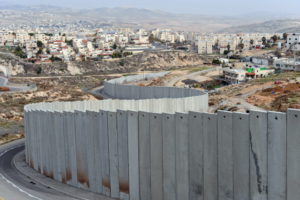
In 2003, the UN General Council requested an advisory opinion from the International Court of Justice on the legality of Israel constructing a wall within and round the occupied West Bank, and on the impact of the construction of the wall on the daily life of Palestinians under occupation. The court determined that the wall’s construction was illegal, that it should be dismantled and that Israel was obliged to make reparation for all damage caused by the construction of the wall. Construction continues.
More recently, UN Security Council Resolution 2334 states that settlement activity since 1967 constitutes a “flagrant violation” of international law and has “no legal validity.” It demands that Israel stop such activity and fulfill its obligations as an occupying power under the Fourth Geneva Convention. This Resolution was adopted in December 2016 by a 14–0 vote. While the United States abstained, this was a rare example of the US allowing a resolution opposed by Israel to pass. Normally the US sides with Israel to obstruct UN efforts to protect Palestinians. While Israelis rail against nearly all UN resolutions about their country, Israel requested UN membership and was admitted in 1949.
US Policy and Israel
In the current “America First” era, the United States is increasingly siding with international lawlessness by withdrawing from numerous international agreements. For example: the US is not party to the International Criminal Court (apparently over concerns about possible adverse judgments relating to military actions in Afghanistan) and recently withdrew from the Arms Trade Treaty and threatened to veto a UN Security Council resolution seeking to end the use of rape as a weapon of war, insisting on removing language on reproductive health.
Specific to Palestine and Israel, the US has moved its Embassy from Tel Aviv (the internationally recognized capital of Israel) to Jerusalem, despite many UN member states formally adhering to the UN proposal that Jerusalem should have an international status, and UN Security Council resolution 478 affirmed that Israel’s 1980 “Basic Jerusalem Law” which declared a unified Jerusalem as its “eternal and indivisible” capital was a violation of international law. Further, the US Administration has accepted Israel’s illegal annexation of Syria’s Golan Heights.
What can we do?
While the US usually (and increasingly) provides diplomatic, military and financial cover and support for Israeli actions that are condemned as illegal under international law, what should we do as citizens? Apart from protesting the actions of our government and the $3 billion of our taxes that subsidize Israel’s violations of International Law, we can peacefully boycott, divest and sanction Israel (supporting the BDS movement.) This is what Palestinian civil society has called for, until such time as the occupation ends, refugees are permitted to return, and Palestinians living in Israel have full and equal rights. These demands of the international BDS movement are firmly based on principles enshrined in international law.
Sources:
- United Nations Relief and Works Agency for Palestine Refugees in the Near East (UNWRA)
- Resolution 242
- The Russell Tribunal on Palestine
- More of Russell Tribunal on Palestine
- International Court of Justice: July 2004 General List Case No. 131: “Legal Consequences Of The Construction Of A Wall In The Occupied Palestinian Territory”
- List of United Nations resolutions concerning Israel
- List of United Nations resolutions concerning Palestine
- ICRC: The Fourth Geneva Conventions of 1949
- Boycott, Divestment and Sanctions
- Human Services Research Council in South Africa finds that Israel is practicing apartheid and colonialism in the Occupied Palestinian Territories
